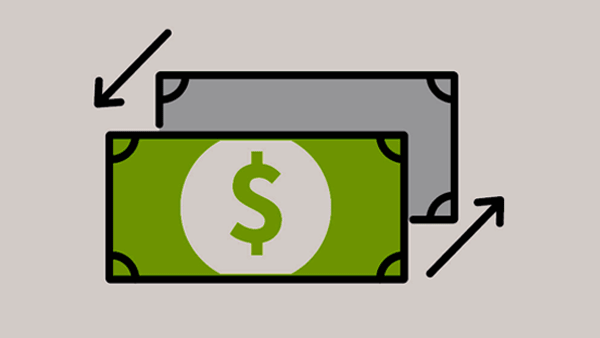
A savings account is almost like any bank account. The difference is that the bank pays interest on the money that is deposited in the account. Like current accounts, they have an IBAN and a Sort Code to send money to and from. However, savings accounts usually do not come with a debit card. So, money has to be transferred to a debit/current account first to access it.
For any amount that is deposited into the savings account, the bank pays a set amount of interest. Most often savings accounts work on compound interest.
How much interest is paid depends on the interest rate set by the Central Bank. Not only in your country, but the Central Banks globally. The world economy is intertwined and often the actions of one economy affects the other. Based on the interest rate set by the Central Banks, the local banks offer an interest rate for savings accounts. Thus, the interest rate offered by local banks won’t exceed the interest rate set by Central Banks.
Interest rates can differ from bank to bank. Some offer slightly higher interest rates to attract more customers. Other Banks offer a higher interest rate only for a fixed time as an introductory offer.
In addition, some savings accounts offer a fixed interest rate for a fixed amount of years in which the money is deposited in the account. Often with the caveat that there are no cash withdrawals allowed within that period.
Compensation schemes on savings accounts
The positive side about savings accounts are that they are very safe. In fact, almost risk free compared to investments in shares and stocks, which offer higher returns but far greater risk. A run at a bank, while it does happen, does not happen very often. Thankfully, in European Economic Area (EEA) as well as Britain and the US, the individuals’ (depositors) cash at the bank is secured by different guarantee schemes set by governments. In Europe (EEA), the deposit is secured by the DGS (Deposit Guarantee Schemes), covers an amount up to 100,000 EUR per individual per bank. For the United Kingdom the FSCS (Financial Services Compensation Schemes) limit is 85,000 GBP. In the United states the compensation limit set by the FDIC (Federal Deposit Insurance Corporation) is 250,000 USD.
These amounts are per individual (depositor), per bank. It makes therefore sense to open a savings account at a different bank, once the above limits have been reached at one single bank to maintain that protection. However, it is also important to note that some banks operate under more than one brand. Therefore, it’s good practice to check whether a chosen bank is part of another bank. Also if the bank has an individual compensation scheme, or if it is consolidated between the parent company and its subsidiaries.
Slow but steady
The negative side about savings accounts is that the current interest rate is, at the moment, below inflation. Which means that the increase in consumer prices is higher than the interest rate.
However, savings accounts have their use. They are useful for putting some money away in order to ensure liquidity as added security – for the unforeseen events in life. Or, for stashing money away from the day to day transactions of a deposit account, and for saving up money for purchases in the near future, while collecting a little interest in the process.








